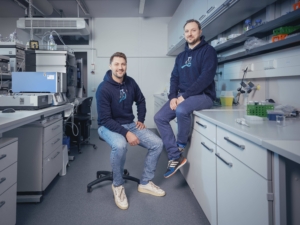Carbios tackles marine littering
French Carbios has presented a process that depolymerises one of the most common non-recycled plastics polluting the oceans.
PET currently makes up 7% of the global US$400bn plastics market and is the fifth most common non-degradable plastics found in the oceans. Green chemistry play Carbios SA, Clermont-Ferrand, said it has taken a major step forward in the development of an enzymatic biorecycling process of the polyester that normally persists for more than 1,000 years in the ocean. The French company has made thermostable bacterial enzymes applicable to crystalline PET, meaning the process is applicable to all kind of plastic waste containing PET, namely bottles (transparent, opaque or multi-layer), packaging and films.
According to Carbios, it was able to depolymerise 100% of PET into its monomers providing the basis for a circular production/recycling process that has the potential to deliver sustainable plastics. The process, which was developed within the THANAPLAST project, adresses a market worth more than US$31bn dollars annually. The news followed Carbios’ previous announcement that it had successfully depolymerised 100% amorphous PET-based commercial products into its original monomers, TPA (terephthalic acid) and MEG (mono ethylene glycol). In contrast to current downcycling technologies, the depolymerisation process regenerates the monomers with no loss in quality. After separation and purification, the monomers could be reused for the synthesis of virgin PET.
The company announced to move the process swiftly into an industrial pilot development stage. I’m proud that Carbios, the LISBP and the CRITT Bio-Industries teams met this incredible challenge, said Alain Marty, Chief Scientific Officer of CARBIOS. This is the result of a multidisciplinary approach combining the screening of microbiological biodiversity, the discovery of a remarkable enzyme, its evolution by enzymatic engineering, and process engineering.
For bottle producers such as Coca Cola the process might be interesting as long as the novel high performance bioplastics PEF hasn’t reached the marketplace. The thermoplastic material is the most favored polyester for manufacturing plastic bottles (69% of PET plastics), films (14%), packaging (10%) and other applications (7%). Conventional technologies to recycle PET involves heavy sorting constraints for a limited recycling rate and above all, the production of lower quality secondary products.
These results comfort our innovative industrial approach in PET based plastic biorecycling and offer the prospect of an early deployment of our proprietary technology together with the largest global players in this industry stated Jean-Claude Lumaret, CEO of Carbios.


 SLAS - Alexandra Csuport Photography
SLAS - Alexandra Csuport Photography Phabioc GmbH
Phabioc GmbH